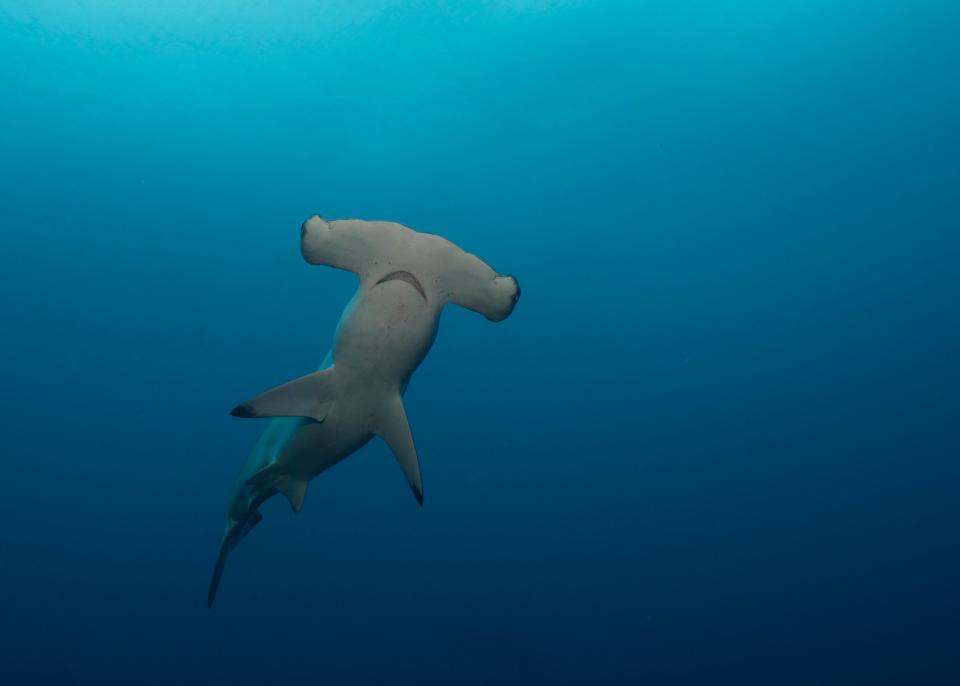The fastest vaccine ever developed
Today we dive into the story behind the race to a COVID-19 vaccine and lift the curtain on the Capitol Police's budget after the deadly siege.
It's Ashley. Let's talk news.
But first, Gamestop gets upvoted: What does Reddit have to do with GameStop's stock prices? Shares of the struggling video game retailer surged this week. You can thank Reddit users for that.
The Short List is a snappy USA TODAY news roundup. Subscribe here!
How an unheralded team developed a COVID-19 vaccine in record time
The COVID-19 vaccines will go down as one of the major triumphs of medical science. They weren’t created overnight: Credit for Moderna's COVID-19 vaccine belongs in part to discoveries dating back 15 years, David Heath and Gus Garcia-Roberts report. After two children died in a vaccine trial in 1966, decades of research into that tragedy yielded findings in 2013 that were pivotal to making a highly effective and safe vaccine. Had COVID-19 come 10 years earlier – or even five – science would not have been ready. Here’s the story of the scientists who made the vaccine happen.
The Biden administration’s task force on COVID-19 held its first virtual briefing Wednesday, promoting its efforts to expedite vaccinations while giving a grim warning: the nation could surpass 500,000 deaths within weeks.
Eli Lilly announced that its monoclonal antibody cocktail cuts hospitalizations by 70% for high-risk COVID-19 patients.
Tracking COVID-19 vaccine distribution by state: How many people have been vaccinated in the USA?
Let's look inside the Capitol Police budget
A year ago, the U.S. Capitol was the kind of place where a suspicious flicker on a radar screen was all it took for police to lock doors and stop traffic. Yet three weeks ago, when the threats turned into the single largest attack on the main building under the agency’s protection, hundreds of officers were sent into the chaos with little, if any, protective gear. Capitol Police have an estimated $500 million budget, $22 million of which is set aside for equipment this year. Where were the stockpiles of riot gear during the attack that left five people dead? USA TODAY explored the agency’s handling of threats and security.
The investigation into the deadly Capitol siege continues to grow: More than 400 suspects have been identified by authorities who expect to bring sedition charges against some of those linked to the insurrection. The charges could carry a maximum punishment of 20 years. At least 138 people have been arrested.
What everyone’s talking about
Amanda Gorman, the 22-year-old poet who captured the nation's attention at the presidential inauguration, will perform at the Super Bowl.
Florida county's "Paramedic of the Year" was arrested, charged with stealing COVID-19 vaccines.
A pediatrician was identified as a suspect in an hours-long SWAT standoff at an Austin doctor's office, police say.
Bill Gates warned about a pandemic. And enough about microchips, he says.
Seattle Seahawks offensive lineman Chad Wheeler was arrested on suspicion of felony domestic violence.
So we're doomed?
After a brutal 2020, the Doomsday Clock is still 100 seconds to midnight – the same time as last year, but don’t get your hopes up: That’s the closest the clock’s been to destruction since it was created in 1947. Each year, the Bulletin of the Atomic Scientists, a nonprofit group that sets the clock, decides whether the events of the previous year pushed humanity closer to or further from destruction. The closer to midnight we are, the more danger we're in, according to the Bulletin. The Doomsday Clock authors wrote that "by our estimation, the potential for the world to stumble into nuclear war – an ever-present danger over the last 75 years – increased in 2020."

Biden's all in on fighting climate change
President Joe Biden signed another raft of executive actions Wednesday to combat climate change and pause oil drilling on public lands in the latest move to unwind the Trump administration's environmental policies. Biden's goal is to decarbonize the U.S. power sector by 2035 and reach net-zero greenhouse gas emissions by 2050. Where does America stand now? The USA emits the second-largest amount of carbon dioxide (CO2), producing about 5.41 billion metric tons in 2018. But we're not the worst country: China emits nearly twice that amount.
Real quick
Community leaders decry the lack of Asian Americans in Biden's top Cabinet picks. "Insulting and frustrating."
Alaska's DMV investigates a vanity plate spotted with Nazi terminology.
Hyatt offers free COVID-19 testing at 19 of its resorts in Mexico, Costa Rica, the Caribbean and South America for guests traveling to the USA.
Longtime NBA writer Sekou Smith, known for his basketball insight and friendly demeanor, died at 48 of COVID-19.
A Michigan man admitted to his role in the plot to kidnap Gov. Gretchen Whitmer.
Sharks are in danger
Sharks are dying at a devastating rate: Shark populations in the world's oceans have declined by an "alarming" 71% since 1970, according to a study published Wednesday. The research found that more than three-quarters of the shark and ray species the scientists studied are threatened with extinction. Three species of shark – including the great hammerhead – have declined so sharply that they are classified as critically endangered – the highest threatened category. The risk of extinction is primarily caused by overfishing, study authors said.

A break from the news
💳 Millennials rack up credit card debt during the pandemic.
🥗 The top 10 health and fitness trends everyone will be focused on this year.
💋 Jennifer Lopez is kissing and telling: The singer dished on kissing Matthew McConaughey during the "Wedding Planner" reunion.
This is a compilation of stories from across the USA TODAY Network. Want this news roundup in your inbox every night? Sign up for The Short List newsletter here.
This article originally appeared on USA TODAY: COVID-19 vaccine, Capitol Police, Biden, Doomsday Clock: Wednesday's news

